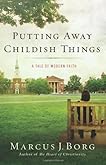
On the Church calendar today was Pentecost. For those who do not know, Pentecost is the day set aside to recognize the founding of Christianity as a new religion. The story in
Acts 2 is as follows:
When the day of Pentecost had come, they were all together in one place. 2And suddenly from heaven there came a sound like the rush of a violent wind, and it filled the entire house where they were sitting. 3Divided tongues, as of fire, appeared among them, and a tongue rested on each of them. 4All of them were filled with the Holy Spirit and began to speak in other languages, as the Spirit gave them ability. 5Now there were devout Jews from every nation under heaven living in Jerusalem. 6And at this sound the crowd gathered and was bewildered, because each one heard them speaking in the native language of each. 7Amazed and astonished, they asked, “Are not all these who are speaking Galileans? 8And how is it that we hear, each of us, in our own native language? 9Parthians, Medes, Elamites, and residents of Mesopotamia, Judea and Cappadocia, Pontus and Asia, 10Phrygia and Pamphylia, Egypt and the parts of Libya belonging to Cyrene, and visitors from Rome, both Jews and proselytes, 11Cretans and Arabs—in our own languages we hear them speaking about God’s deeds of power.”
As history it won't work. In the Jewish Tradition the Law was given on Pentecost. The author of
Acts is simply using that date to have the "New Covenant" given on that same day. This is parable, not history (as if the flaming tongues and gift of languages were not enough to reveal that!).
In fact, it seems quite clear that the author is presenting this event as an undoing of the Tower of Babel. The Tower of Babel is that myth in the book of
Genesis wherein God divides the human race by forcing them to speak in multiple languages, making them incomprehensible to each other.
What the author of
Acts is saying is that the Holy Spirit which comes to the believer by the spirit of the Risen Jesus reverses this division and instead brings all together in unity. The great barriers separating humanity are conquered in the Spirit of the Risen One. As the ministry of Jesus was defined by breaking down the barriers that divide us from each other, this story is an admirable recognition of that same power alive in those who follow him.
The symbolism of reunification is very clear from the beginning of the the text. We are told that "they were all
together in one place," and, lest we should still not get it, the Author ends his story of Pentecost with the following account of the life of the Early Jesus movement:
44All who believed were together and had all things in common; 45they would sell their possessions and goods and distribute the proceeds to all, as any had need.
It is not too surprising that the early Jesus movement "had all things in common," as Jesus himself seems to have lived this way and taught others to do the same ( see
Luke 9:58, &
Luke 18:18-25). And this passage should be read very carefully by those who champion big corporations and unregulated markets before they declare that they truly follow Jesus. But that is not my point here.
Historians of early Christianity are certain that Christianity as a religion separate from Judaism cannot be dated to before the destruction of the Jewish Temple in 70 A. D. And the break is not complete until the early second century. Pentecost therefore, cannot really be about the founding of a new faith.
What Pentecost is about is unity. The world is and always has been deeply divided. These divisions all too often cause harms. The story of Pentecost tells us that division is not final, that we need not cave to it. Beneath our divisions there is a unity. That unity can be grasped, can be seen, can be lived.
As far as history is concerned the Apostles never did speak in multiple languages at once. Neither can we. But perhaps, if we but let ourselves be "filled with the Holy Spirit" we can come to understand each other and finally all come "together in one place."




